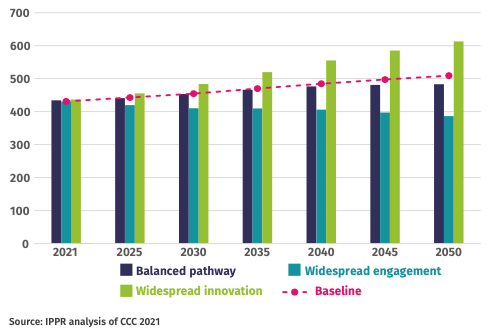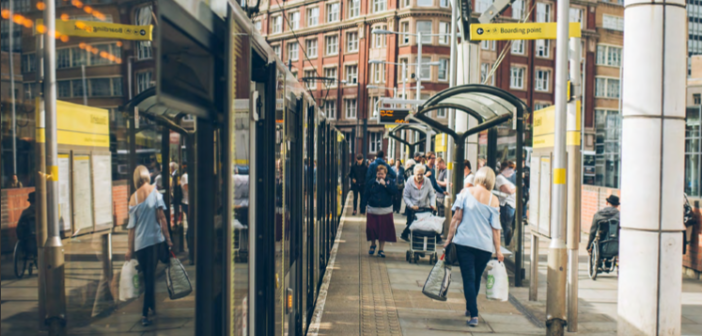The UK government need to look at public transport and active travel, as well as the switch to EVs, to decarbonise transportation, according to new research by the Institute for Public Policy Research (IPPR).
In a recently published report, the IPPR argues that the UK government’s upcoming plan for decarbonising transport must focus on improving people’s quality of life, and this cannot be achieved through a shift to EVs alone.
IPPR analysis of the Committee on Climate Change’s sixth carbon budget shows that, without additional measures being put in place, the current approaches to reaching net zero could lead to an 11% rise in car traffic between 2021 and 2050.
The study also predicts a 28% increase in car ownership, with 10 million more cars on the road by 2050. It adds there will be even more land and street space used for car parking as the average car in the UK is parked 96% of the time.

Luke Murphy, head of the IPPR Environmental Justice Commission, said: “We need to massively expand the provision of and affordability of clean public transport options, such as trains, buses and trams, while helping more people to regularly walk and cycle, alongside a shift to electric vehicles for those that need them.”
The report recommends creating a national guarantee for levels of public transport, with seven days a week availability in rural areas. It champions the principle of 20-minute regions where everyday needs should be accessible within a 20-minute walk, cycle or public transport trip.
It also calls for a ‘help to move scheme’ to provide grants and loans to support people to buy cycles, e-scooters, e-bikes or EVs where they need them.
Becca Massey Chase, deputy head of the IPPR Environmental Justice Commission, said: “Creating more liveable streets and neighbourhoods is essential to realising the economic, environmental and social benefits of a transformed transport system. With fewer cars, we can reclaim space for nature and improve health by reducing air pollution and boosting active transport.
“Delivering infrastructure that connects every part of the country digitally and physically seven days a week will create considerable economic benefits and enable more people to stay local, rather than be forced to leave home for work or commute long distances.”





